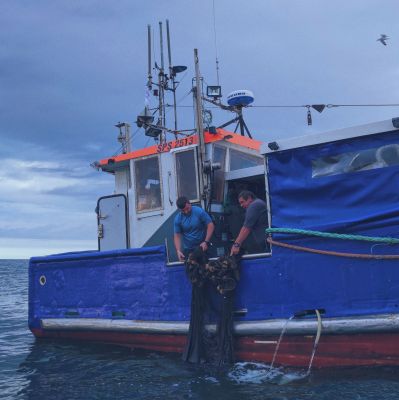Clean Baltic 2: The project of the Darłowska Group of Fish Producers and Shipowners comes to an end
Marine litter (marine debris) is any type of persistent, manufactured or processed solid material that has been made or used by humans and is intentionally or unintentionally discarded into a marine or coastal environment[1]. Marine litter consists of items that have been made or used by people and deliberately discarded into the sea or rivers or on beaches; brought indirectly to the sea with rivers, sewage, storm water or winds; or accidentally lost, including material lost at sea in bad weather, such as plastics, wood, metals, glass, rubber, fishing gears, clothing, paper, etc.
Synthetic fishing nets, broken at shipwrecks and other underwater obstacles, or lost during storms, retain their catchability and continue to fish uncontrolled for many years, thus becoming deadly traps for Baltic living organisms such as fish, seals, porpoises and diving birds. Such additional, uncontrolled catches could have a negative impact on the stability of fish stocks. Static nets and drifting nets broken during storms are the greatest threat to marine resources . These nets, classified as entangling nets , are made of fine stylon lines,dyed to reduce their visibility in the water.
Derelict fishing nets impact the stability of valuable fish stocks such as cod, salmon, sea trout and flatfish (flounder, plaice and turbot). Moreover, diving birds and marine mammals can get entangled in the meshes of abandoned nets and in consequence die.
Clean Baltic 2 project was the second edition of the Baltic project aimed at increasing the awareness of the society and sea users about derelict fishing nets and their impact on the environment. The project was carried out by Darłowska Group of Fish Producers and Shipowners with 73 fishing vessels from the ports of Darłowo, Świnoujście, Ustka, Władysławowo, Jarosławiec and Dąbki . Over 10 tonnes of marine litter were removed during the project. The aim of the project was to remove marine litter from the Baltic and to increase the awareness of the society and sea users about derelict fishing nets and their impact on the environment.
_________________________________________
[1] UN Environment Programme



